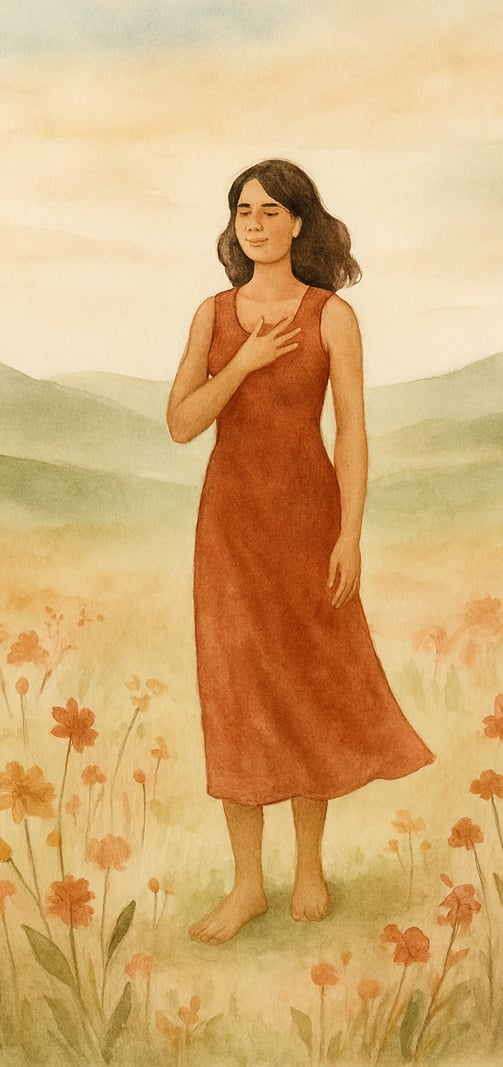Coming Home to Yourself: A Quiet Return After a Long Journey
Blog post description.
4/11/20252 min read


There wasn’t a single moment when it all shifted.
No dramatic meltdown. No lightning-bolt clarity. Just… a slow awareness, like fog lifting from a familiar street.
She was standing at her kitchen sink — dishes half done, the hum of the fridge filling the silence — when it hit her:
“I don’t remember the last time I felt connected to myself.”
She wasn’t falling apart.
She was just tired.
Tired of rushing. Tired of reacting. Tired of showing up in every space with a mask she wasn’t even sure how to take off anymore.
From the outside, things looked fine — maybe even good.
Work. Relationships. Functioning.
But on the inside? She’d been living on autopilot. Drifting. Existing. Playing roles she no longer recognised.
And for the first time in years, she let herself ask:
“What if this isn’t all there is?”
What if life could feel gentler?
What if she could feel gentler?
In Buddhism, there’s a teaching about returning to the breath. Not because the breath is magic — but because it brings you back to now. To presence. To yourself.
Western psychology echoes this with the concept of self-awareness — that moment when your unconscious patterns surface, and you begin to live by choice rather than by habit.
This is where her journey began.
Not in therapy. Not in a retreat.
But in that quiet question over a sink of half-washed plates:
“Could I live differently?”
Coming home to yourself doesn’t start with grand gestures.
It starts with small, holy rebellions:
Saying no without guilt.
Going for a walk without your phone.
Crying without shaming yourself.
Noticing the tension in your shoulders and softening — even just a little.
It’s the practice of witnessing your inner world and choosing kindness over critique.
It’s beginning to understand that maybe… you were never broken.
Just disconnected.
Just overwhelmed.
Just human.
There’s a Buddhist phrase that says,
“You, yourself, as much as anyone in the entire universe, deserve your love and affection.”
But we’re rarely taught how to give ourselves that love.
We learn how to perform. How to succeed. How to hide pain well enough to keep going.
But love? Presence? Compassion for our messy, real selves?
That part takes remembering.
In Western psychology, Carl Rogers — a pioneer of humanistic therapy — spoke of unconditional positive regard: the idea that deep healing happens when you are accepted as you are, without judgment.
Now imagine offering that to yourself.
Not as an act of narcissism.
But as an act of liberation.
So here she is now. Not “healed.” Not perfect.
But softer.
More present.
More able to sit with discomfort without abandoning herself.
She makes mistakes. Still gets reactive. Still forgets sometimes.
But she comes back quicker.
She breathes.
She forgives.
She knows the way home now.
And maybe that’s what this whole life thing is about —
Not escaping who you are, but returning to it.
Return to your breath.
To your body.
To your values.
To your knowing.
To the self you were before the world told you who to be.
If you’re reading this and feel something stirring —
that ache, that whisper, that quiet pull —
let this be your sign.
You don’t need to be in crisis to change.
You just need to be ready to come home.
And trust me — it’s a beautiful place to return to.
Unfolding
Unfolding and becoming all the time...
© 2025. Lushani De Silva. All rights reserved.